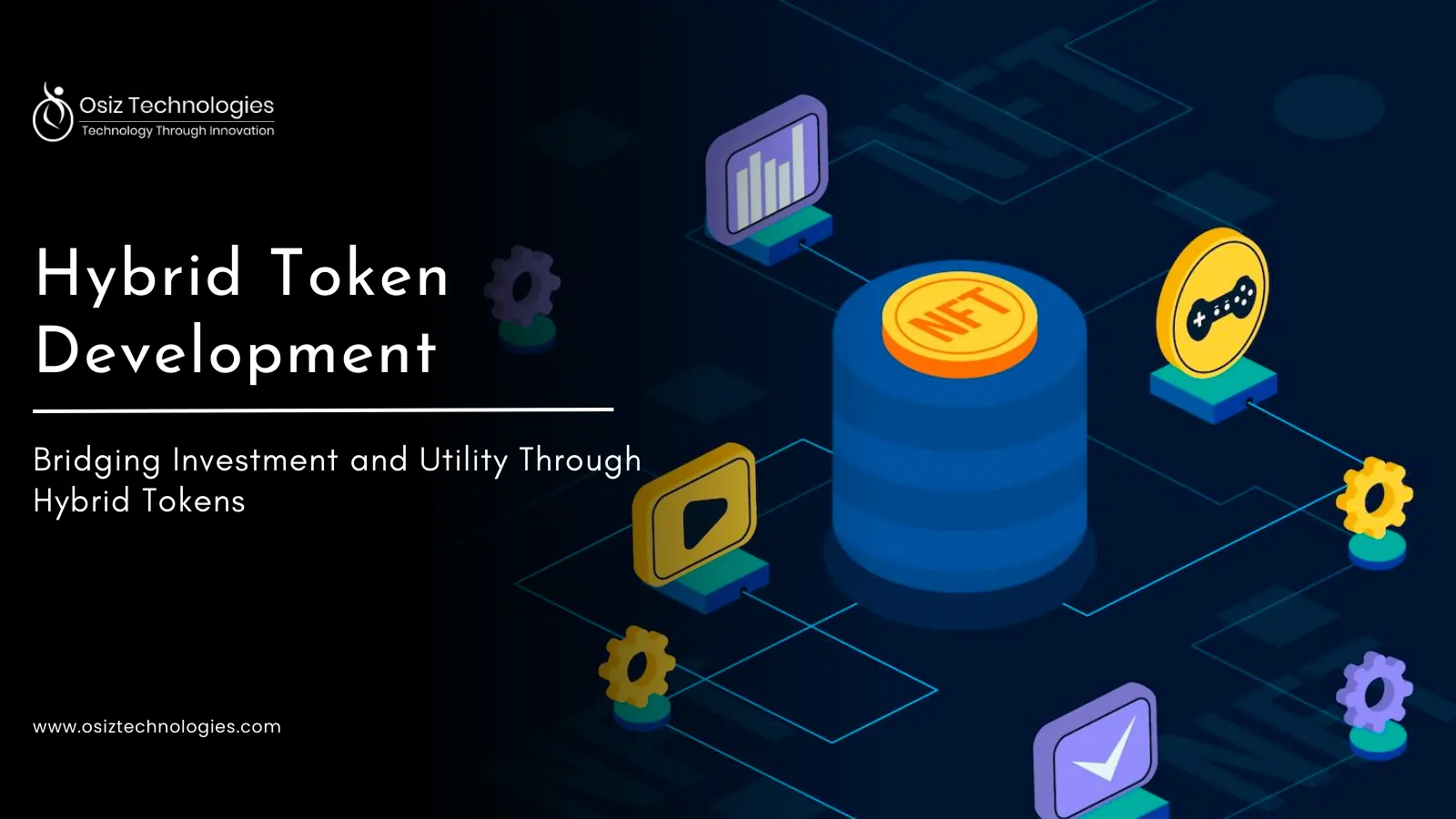Blockchain technology is knocking on the doors of industries outside of cryptocurrencies, and here it is knocking them down in the wine sector as well. With its great tradition, however, the wine industry is riddled with issues such as fraud, counterfeiting, and quality control. 20-50% of premium wines, it is said, are counterfeits; they rob a brand of its trust.
Osiz, one of the best blockchain development companies, paves out new paths toward these challenges. Blockchain-very unusual transparency and traceability-meaning authentication and good store conditions through which this industry also draws empowered tools into producers, collectors, and investors to fight against fraud and redefine wine distribution investment. Truly, blockchain in wine is revolutionary.
Key Challenges in the Wine Industry
The wine industry is very traditional, but there are modern challenges, such as counterfeit products, and problems with checking quality and keeping trust. These problems affect the premium segments most, which erodes authenticity and confidence among consumers. However, it is essential to address the problems for retaining the hard-earned reputation of the industry and maintaining consistency in quality for the producer and the consumer.
Wine Fraud and Counterfeiting
The premium wine market suffers significantly from wine fraud and counterfeiting, both of which erode trust and cause huge financial losses. According to industry reports, as many as 20-50% of premium wines, worldwide, are counterfeit and include means such as fake labels, refilled bottles with lesser quality wine, or vintage alteration for inflated prices. These fraudulent operations affect collectors, consumers, and wineries alike, with an estimated loss of $3 billion due to counterfeit wine in 2016 alone.
Such fraudulent wineries are, particularly those that produce high-value vintages, among the target fraud areas, causing harm to their reputation and economy trust. High-profile cases, such as that of Rudy Kurniawan, have made this growing issue public.
For winning the war against wine fraud, the industry seeks state-of-the-art technologies such as blockchain for wine tracking to permit verifiable authenticity, and obviously, to make things as transparent as possible. This is the ideal solution to regain the lost trust, ensure quality, and protect the marketplace value of the global wine empire.
Quality Control in Transportation and Storage
Maintaining the quality of wine during transportation and storage is very important, especially for high-value wines. These wines are sensitive to temperature, humidity, and light fluctuations. Even slight deviations from optimal conditions can spoil the wine, with exposure to heat causing oxidation and rendering it undrinkable.
Traditional methods for tracking storage conditions do not allow for real-time verification, so producers and consumers may not be aware of potential damage until it is too late. This lack of transparency in the wine supply chain is a risk, especially in long-distance transportation. Advanced tracking technologies, such as blockchain, offer solutions through real-time monitoring, enhancing quality control, and preserving wine integrity.
Smoke Taint from Wildfires
Wildfires are now becoming one of the main threats to the wine industry in regions like California and Australia. Smoke exposure or smoke taint can greatly alter the taste and quality of the wine, thus making whole harvests undrinkable. The smoke compounds seep into grape skins and can impart a lingering smoky flavor that cannot easily be removed in the winery.
Traditionally, methods of smoke exposure have proved inadequate; thus, producers and buyers have no idea what the qualitative value of wines is from smoked-infested lands. This calls for better solutions in detecting and verifying the impact of smoke taint, to ensure transparency and help buyers make informed decisions.
Traceability and Provenance Verification
As global markets increase, there's a growing need in the wine sector for traceability and provenance verification. It is essential to ensure that one's wine is sourced ethically, stored, and produced sustainably by consumers and collectors. However, the wine supply chain is often quite fragmented, having many intermediaries that complicate the journey from the vineyard to the consumer.
This lack of transparency makes it quite difficult to track the entire chain of a wine bottle, so there is much room for tampering, mislabeling, and fraud. There is a loss of money incurred by collectors, especially for rare wines, due to a lack of any provenance verification system.
Blockchain Applications in the Wine Industry
The adoption of blockchain technology will revolutionize the wine industry with enhanced transparency, traceability, and efficiency throughout the production line. It covers everything, starting from the vineyard to delivery to consumers - all these through secure, unalterable records of each transaction. Thus, the authenticity of wines will be guaranteed and certified by their origin, quality, and method of production.
In addition, smart contracts simplify the process of supply chain management, with reduced fraud and increased accountability. Blockchain can enable wineries to build trust with consumers, minimize counterfeits, and streamline inventory management. The wine industry is thus gradually opening up avenues for a more transparent, secure, and efficient market through the integration of blockchain.
Blockchain Use Cases in the Wine Industry
The wine sector is using blockchain technology to revolutionize its work while ensuring it remains quality-rich, authentic, and transparent. Here are the major use cases.
Quality Control with IoT Integration
Blockchain uses IoT devices, including temperature monitoring and humidity; storage conditions; thus, by storing these conditions in the blockchain, the authenticity of the product quality is secured in the case of wine products all through production until the distribution levels.
Wine Tracking
Blockchain gives end-to-end visibility on the journey of wine from the vineyard to the consumer. Each step, from harvesting to bottling and transportation, is recorded immutably, giving producers and customers rich tracking data.
Counterfeit Prevention
Using blockchain, every bottle of wine can have a unique digital identity. Consumers can scan a QR code to verify its authenticity, effectively preventing counterfeiting in the high-value wine market.
Provenance Verification
Blockchain ensures the origin and history of wine are transparent. Consumers can easily trace their wine to the vineyard, learning about the grape variety, production methods, and regional characteristics.
Supply Chain Transparency
Blockchain fosters trust by providing a transparent view of the entire supply chain. Producers, distributors, and retailers can collaborate efficiently, while consumers gain confidence in the wine's journey.
Blockchain is empowering the wine industry to improve its trust, operating efficiency, and customer experience.
Blockchain’s Impact on Global Wine Markets
Blockchain technology revolutionizes the international wine trade by providing complete transparency and authenticity throughout the production chain. Vineyards therefore achieve the most trusted traceability in the market, giving them high-value returns in market processes that place a premium on quality and origin, such as luxury wine auctions. For small vineyards, this therefore plays the leveling field by enabling them to compete by promising the integrity of their products. Blockchain technology will help safeguard the authenticity of premium wines and create new opportunities in the highly competitive global wine industry.
Wine Investment and Blockchain
Blockchain is transforming the wine investment market through transparency, security, and authenticity. The global fine wine market is estimated to be at $65 billion; blockchain protects provenance and enhances investor's confidence. Blockchain makes investments in wine more accessible while further protecting the investment value of tens or hundreds of thousands in investment-grade bottles.
Tokenized Wine Assets
Blockchain enables tokenized wine assets, where each bottle or collection is linked to a unique digital record containing details on provenance, condition, and storage history. This ensures authenticity and combats the $3 billion counterfeit wine problem. Tokenization democratizes wine investment by allowing fractional ownership of high-value collections.
For instance, a $100,000 bottle can be divided into affordable shares, and this will enable smaller investors to participate. The approach is innovative because it not only increases trust and accessibility but also creates new opportunities for wine enthusiasts and investors alike to diversify their portfolios.
Blockchain-Enabled Wine Auctions
Blockchain is revolutionizing the wine auction market, which currently exceeds $500 million annually, by ensuring the authenticity and transparency of the sale. It provides a secure, verifiable record of a wine's journey from the vineyard to the cellar, eliminating concerns about counterfeit or poorly stored bottles. Buyers gain confidence through traceable history and secure transactions, thus enhancing auction values.
AI-Driven Wine Valuation
Blockchain powers AI-driven wine valuation tools, providing real-time, immutable data on storage conditions, provenance, and market trends. The tools will be able to give accurate, dynamic insights into the value of wine holdings and thus inform investor decisions.
For example, a tokenized wine collection can appreciate faster given optimal storage over one with not-so-good storage. Therefore, AI-empowered algorithms, which apply blockchain-locked records, use reliable and non-manipulable valuations. This provides investors with information on the extended lifespan and possible gain of their stored assets, setting a new pattern for the evaluation of wine investments given the increasingly dependent market on more data.
Closing Thoughts
Blockchain technology is changing the wine industry, ensuring transparency, authenticity, and efficiency in production, distribution, and investment. From fighting counterfeits to tokenized wine assets and AI-driven valuations, blockchain unlocks new opportunities for vineyards, investors, and consumers. This innovation enhances trust, streamlines operations, and democratizes access to the global wine market.
Osiz is a blockchain development company with leading solutions that transform the wine industry. Specializing in creating scalable and secure blockchain applications, we helps businesses take hold of the future of wine production, tracking, and investment in order to experience sustainable growth and unparalleled trust in the market.
Listen To The Article












